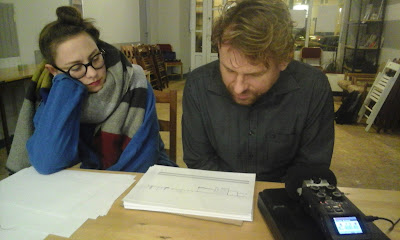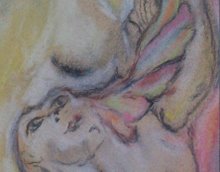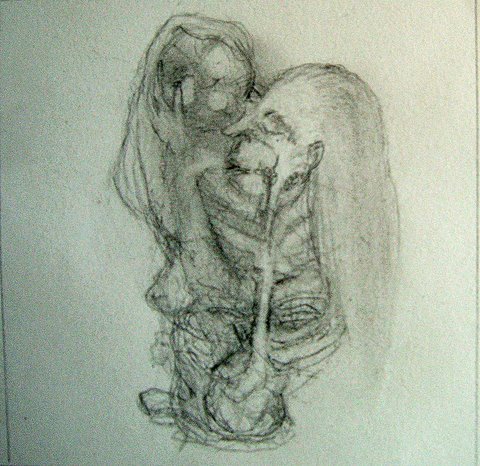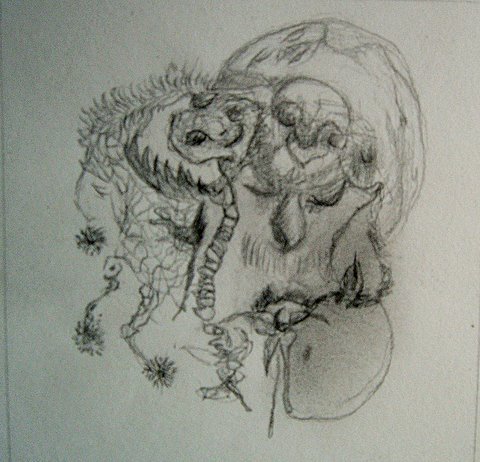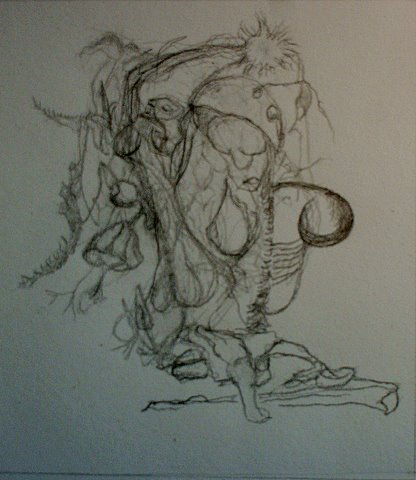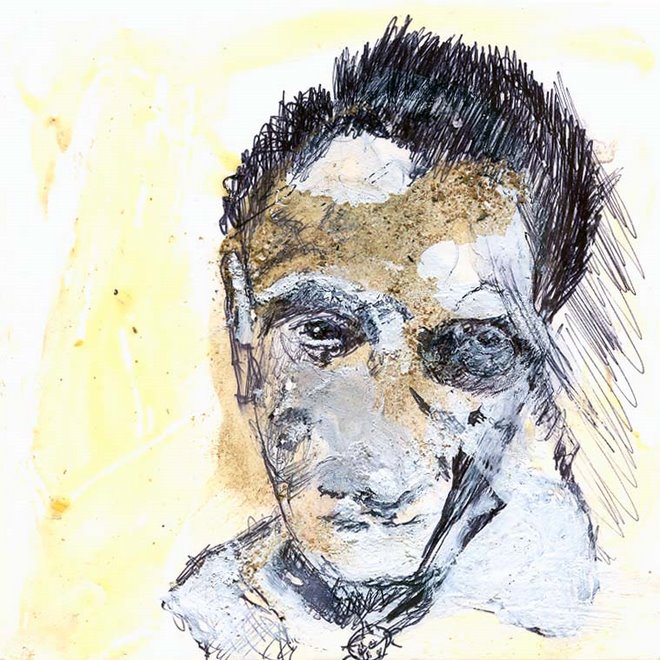 |
| Art Work by Kari Davis |
well, David, this is going nowhere, your being gone, I mean, suppose you knew that
so I go back to the tree upended in heavenly city Earth,
the forests again blazing through the very nerves I bet you hear the crackle
the forests again blazing through the very nerves I bet you hear the crackle
Bernie Krause nearly lost the catalogue of sounds of species being lost through
negative science maybe mere negligence human too, so many wild exponential curves
heading now back am I to kether through da'at secret garden pertugio back of helter
skelter slide to the origins of all poetry in say-what say-da'at, lights a candle
for whose name comes up in the wheel of words within wheels of worlds
mixoldelic micromashups my world according to the spell check bee buzzes
old buzzards, felt-thought of Joseph Beuys, sculptural etiolates of buy-buy-culture,
even these words these tinders of tinsel old tannenbaums fizzle but news arrives
in the form of black-holes which are everywhere now in all particles
so that people show up daily and nightly in my mind oh wait you there too
green tara green tea green twilight nautical eye-brite the jolly-green giant
the back-in-the-jeans talk of days by-gone running forward in sun's froggy tongue
slapping out a long string of coronal ejection mass to heal or at least clear the fog
12/31/2018
*
shortly after learning about David Meltzer's passing in 2016, confirming the news, I went to his website and in the guest book wrote the following poem:
when I was a poet.
David Meltzer was 1 too.
rarely missing a skipped back-beat trained the M vein
long into forgotten, the D
shyly peacock'd known things in clouds of unknowing
nicholas berdayaev kopernickus tesla avadanta mandala
he took the BART for the price of a hardback kabbalah +
I paid him forward, even then now
double nickels of your diamond eyes, old mole.
taint wise rivers with your grizzle
& virgin minds keep themselves
drunken therefrom
+ David had published an anthology of Kabbalistic writing called In the Secret Garden and it was used in his Kabbalah studies class & he sold copies to students at cost for 5 USD and that approximately what the ticket cost from Mission & 16th to Richmond station.
here's a link to the poem in the guest book:
http://www.meltzerville.com/cgi-bin/guestbook/guestbook.cgi?start_number=10
**
Here's a poem by David Meltzer that I turned via looping pedal into a song...
https://jeffgburekprojects.bandcamp.com/track/keep-night-company-by-david-meltzer
***
OURS ARE ONLY LIVING TEMPLES
(for D.M.)
One infant frowne
down the fair air of heaven
ours alone the living temples
alone ours they them us
one infant grown
into stone stamina
gone down river
to get the stem tasted,
once, twice, the charm (that is abyss-baptismal)
thrown between fast
radio burst channels'
signal Hermes of the trellis
of the Milky Waves
brought ashore for
Amrta's churning.
Tether not there hoofs,
the moon peals, but make wine of morning light
rays bequeath rays bereaved,
light shit dawn.
Marvel and open wide:
those columns
have withstood the night
those columns
now withstand the day
however they did so
built up bent slightly inward.
Many the paths in the air Graves' bird
quoted, dipping, swerving.
Light & darkness indifferent
woven in the raven's wing.
The Sufi knows not the path of the Sufi,
not in the ways of men nor women, the proven,
neither in following nor in transgressing.
The artists concern with society
brittle, marginal, personal, tribal
if spiritual accidental
there is no cure for it
you are not bipolar, not exactly mad,
& yet pretension makes the artist political, the deadline
hath spoken, the other river above the human
beckons, not simply Cro Magnon river
drowns the Neanderthal
Homo Sapiens asphyxiates the former
etc through our memory of pike spike & strange fruit
weeps
or whips with the willow,
the light & darkness
never noticed any of it
barely know themselves but how
the eye sorts them out:
ours truly ours
alone the living temple,
with the river, some invisible, above it,
sanctum sanctorum
is the method of,
the horns of, depiction
I have reached the speed limit of life humain
and hope to cruise for a fuse
more years
All my footnotes, for you, infinite reader.
Jan. 6, 2017





